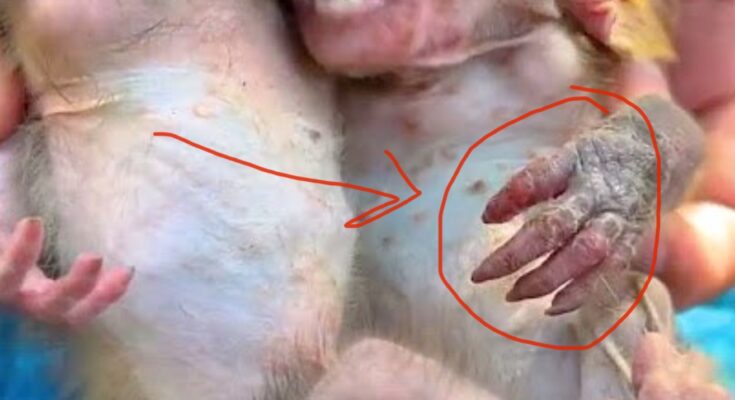Baby monkeys, much like human infants, have extremely delicate skin that requires special care. Whether they are living in the wild, in sanctuaries, or under human care, itchy skin problems can cause serious discomfort and even lead to infections if not managed properly. Understanding the causes and preventive measures can ensure these playful little creatures stay healthy, happy, and itch-free.
Common Causes of Itchy Skin in Baby Monkeys
Several factors can trigger itchy skin in baby monkeys. One of the most common causes is parasites, such as fleas, mites, and ticks. These tiny pests feed on the monkey’s blood, causing irritation and constant scratching. Another major factor is poor hygiene — when the skin is not cleaned properly, dirt and sweat can accumulate, clogging pores and leading to rashes.
Environmental factors also play a big role. Dry air, especially in cooler or indoor environments, can strip the skin of its natural oils, causing dryness and flakiness. Allergic reactions to bedding, food, or cleaning products can also cause persistent itching and redness. In some cases, fungal or bacterial infections may develop, particularly if the monkey’s immune system is still developing.
Proper Hygiene and Grooming
Good hygiene is the foundation of preventing skin problems. Caregivers should ensure that baby monkeys are bathed gently using mild, monkey-safe shampoos that maintain the skin’s natural moisture. Overbathing should be avoided, as it can dry out the skin. After bathing, it’s important to dry the fur thoroughly to prevent fungal growth in damp areas.
Regular grooming sessions not only help keep the fur clean but also strengthen the bond between the baby monkey and its caregiver. Grooming allows for early detection of skin issues such as redness, scabs, or parasites, making it easier to treat them before they worsen.
Nutrition for Healthy Skin
A well-balanced diet plays a crucial role in maintaining skin health. Baby monkeys need foods rich in vitamins A, E, and omega-3 fatty acids, which support skin repair and hydration. Fresh fruits like papaya, bananas, and mangoes, along with leafy greens and occasional nuts, can help keep the skin supple and resilient. Always ensure that the monkey is well-hydrated, as dehydration can quickly lead to dry, itchy skin.
Environmental Care and Comfort
The monkey’s living environment should be clean, comfortable, and free from irritants. Bedding should be washed regularly using gentle, fragrance-free detergents. Avoid direct exposure to harsh sunlight or cold winds, as both can irritate sensitive skin. Maintaining proper humidity levels in indoor enclosures also helps prevent dryness.
When to Seek Veterinary Help
If a baby monkey continues to scratch excessively, develops bald patches, or shows signs of bleeding or infection, it’s important to consult a veterinarian who specializes in primate care. Early diagnosis can prevent serious complications and ensure the monkey receives the right treatment.
Final Thoughts
Preventing itchy skin problems in baby monkeys involves a mix of cleanliness, proper diet, and attentive care. By creating a healthy and nurturing environment, caregivers can ensure that these curious and affectionate creatures grow up with strong, healthy skin — free from the discomfort of constant itching.



